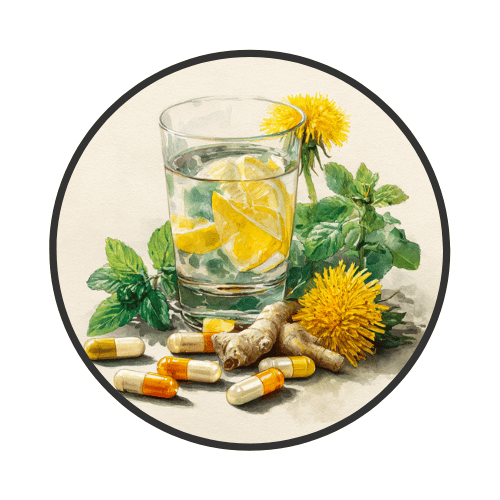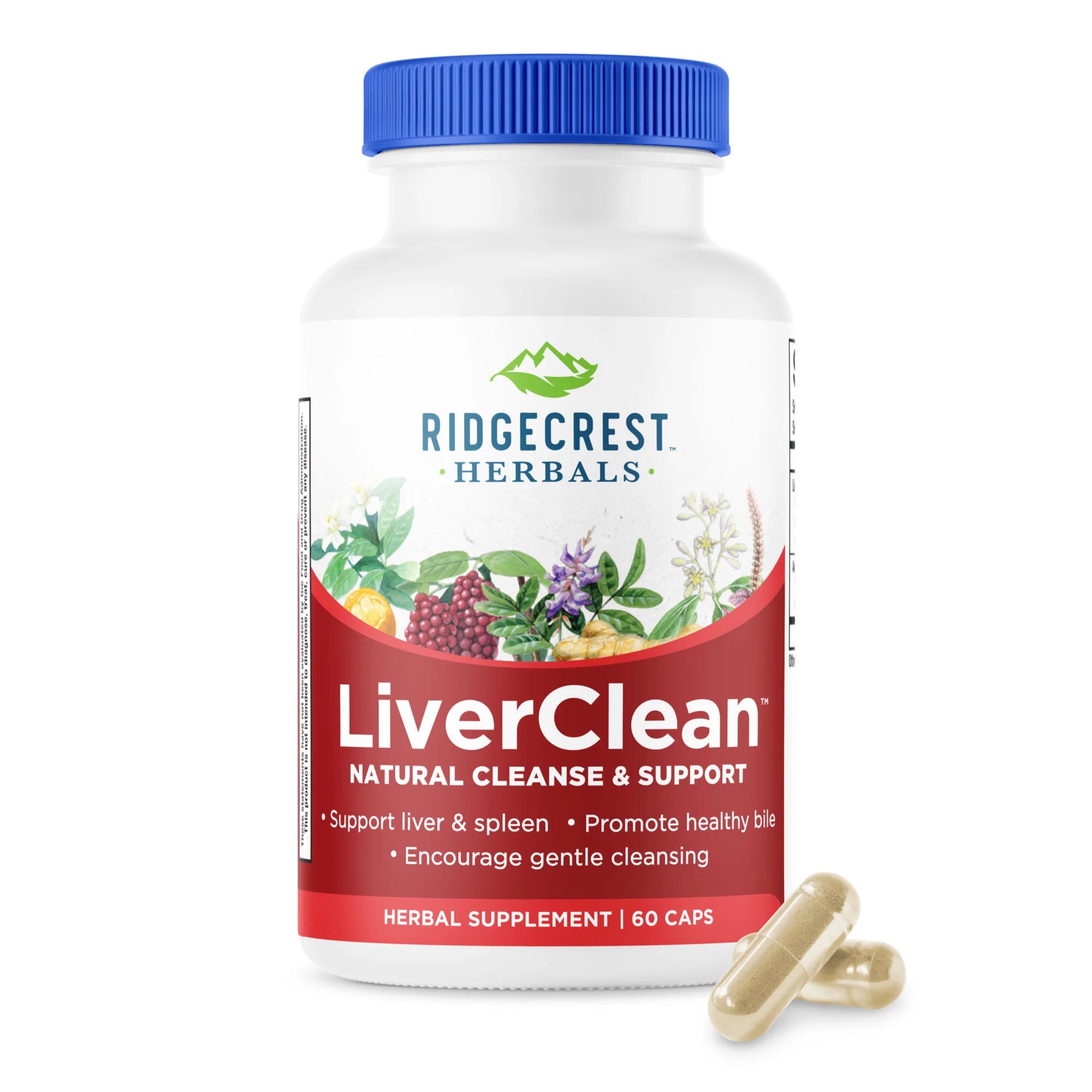Your Liver Works Hard: Is Your Lifestyle Helping or Hurting?
Your liver is one of the most vital organs in your body, responsible for filtering toxins, metabolizing nutrients, producing bile for digestion, and supporting overall balance. It’s the body’s built-in detox system, working quietly and efficiently, often without complaint.
But modern life can throw a lot at it.
While your liver is incredibly resilient, certain everyday habits can place extra demand on its natural detoxification pathways. Here are 12 common factors that may affect liver function and what you can do to support this hardworking organ.
1. Ongoing Daily Stress
Why it matters:
Ongoing stress can increase cortisol and other stress hormones, which may place a heavier burden on your body’s natural detox pathways and affect digestion, blood sugar balance, and liver enzyme activity.
Support it:
Incorporate daily stress relief practices like meditation, breathwork, and adaptogenic herbs such as ashwagandha or rhodiola, which help the body adapt to occasional stress.
2. Skimping on Sleep
Why it matters:
Your liver follows a natural circadian rhythm and does much of its detox work while you sleep. Inadequate rest can disrupt these cycles and reduce the body’s ability to reset and repair.
Support it:
Aim for 7–9 hours of quality sleep. Use sleep-supportive nutrients like magnesium and calming botanicals such as passionflower, lemon balm, or chamomile.
3. Environmental Toxins
Why it matters:
Exposure to pollution, pesticides, cleaning products, and synthetic chemicals adds to your body’s detox workload, potentially overburdening liver pathways over time.
Support it:
Use natural cleaning products, eat organic when possible, filter your water, and consider herbal support with milk thistle, dandelion root, or turmeric to promote healthy liver function.
4. High Sugar Intake
Why it matters:
Excess sugar, especially refined forms like high-fructose corn syrup, can strain metabolic processes and may impact fat storage and liver enzyme activity.
Support it:
Swap sugary snacks for whole foods, balance blood sugar with protein-rich meals, and include chromium or alpha-lipoic acid to support glucose metabolism.
5. Dehydration
Why it matters:
Water is essential for flushing out waste and supporting the liver’s natural detoxification efforts. Without it, toxins may circulate longer than necessary.
Support it:
Drink clean, filtered water daily, herbal teas and electrolyte-rich beverages also count. Add lemon or cucumber for extra hydration support.
6. Poor Gut Health
Why it matters:
The gut and liver are closely connected through the gut-liver axis. When gut bacteria are imbalanced, it can increase toxin production and put additional pressure on liver detox pathways.
Support it:
Eat probiotic-rich foods like fermented vegetables or yogurt, increase fiber, and support digestion with bitters, digestive enzymes, and prebiotics.
7. Synthetic Fragrances and Personal Care Products
Why it matters:
Many conventional beauty and body care products contain chemicals that the body may need to filter through the liver.
Support it:
Choose natural or fragrance-free skincare and personal products. Look for brands that are transparent about their ingredients and avoid parabens, phthalates, and artificial dyes.
8. Overexercising
Why it matters:
While movement supports circulation and detox, overtraining can elevate stress hormones and increase oxidative stress, which the liver must work to manage.
Support it:
Practice balanced movement. Include rest days, gentle practices like yoga or walking, and support recovery with antioxidants and adaptogens.
9. Nutrient Deficiencies
Why it matters:
Your liver needs key nutrients like B vitamins, vitamin C, zinc, and selenium to carry out detoxification processes and antioxidant defense.
Support it:
Eat a varied, nutrient-dense diet, and consider a multivitamin or targeted liver support formula to help fill gaps in your nutrition.
10. Sedentary Lifestyle
Why it matters:
Movement helps stimulate circulation, lymphatic flow, and metabolism, all of which support liver health.
Support it:
Take short movement breaks throughout the day. Even a few minutes of stretching, walking, or deep breathing can make a difference.
11. Skipping Meals
Why it matters:
Irregular eating patterns can impact blood sugar regulation and bile production, both of which are tied to liver function.
Support it:
Eat balanced meals at regular intervals to provide your body with the fuel and nutrients it needs to function efficiently.
12. Excess Alcohol or Caffeine
Why it matters:
Both alcohol and caffeine are processed by the liver. While moderate intake may be fine for many, excess can increase your liver’s workload.
Support it:
Limit alcohol and caffeine when possible. Focus on herbal alternatives like dandelion tea, peppermint, or roasted chicory root for a liver-friendly sip.
Bonus: Exposure to Heavy Metals & Plastics
Why it matters:
Heavy metals and plasticizers can accumulate over time and are primarily processed through the liver.
Support it:
Use stainless steel or glass containers, reduce canned food consumption, and increase detox-supporting foods like cilantro, garlic, and cruciferous vegetables.
Final Thoughts: Small Shifts, Big Support
Your liver is a powerhouse, working every day to keep your body in balance. While daily life can introduce stressors that impact its function, small, consistent changes in your routine can go a long way toward supporting your body’s natural detoxification processes.
From staying hydrated and eating whole foods to using herbs and nutrients that nourish the liver, you have plenty of tools to support this vital organ and feel better doing it.





Leave a comment
All comments are moderated before being published.
This site is protected by hCaptcha and the hCaptcha Privacy Policy and Terms of Service apply.